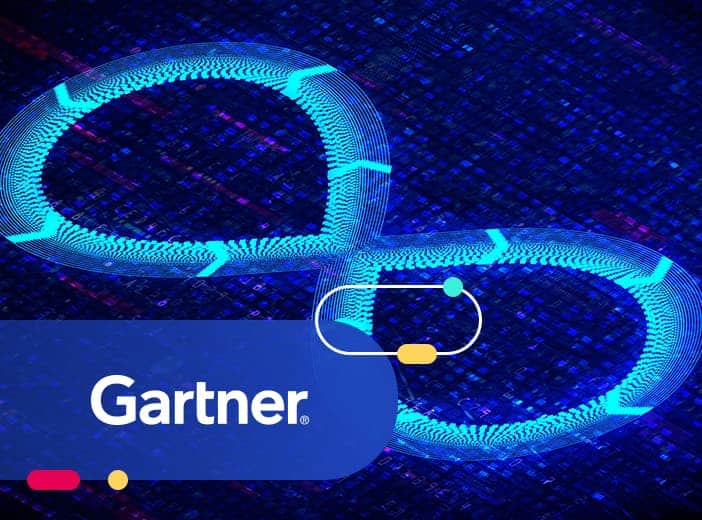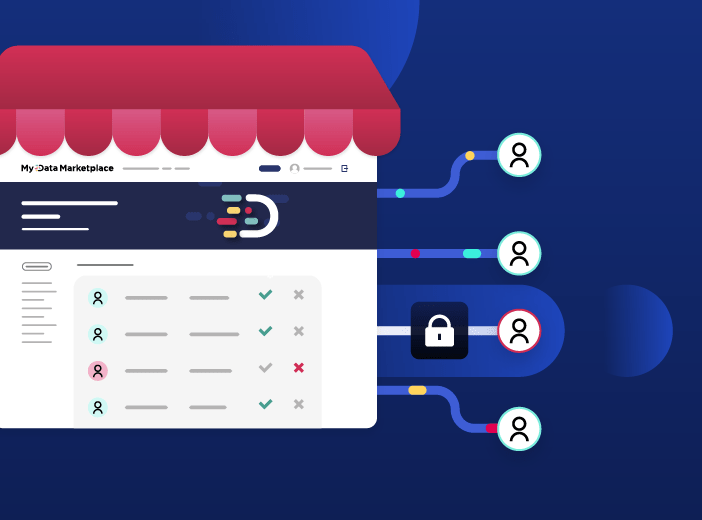What is cloud-based data governance and why is it crucial for companies?
Data governance is critical to ensuring that data is reliable, trustworthy and accessible by the right users, enabling organizations to become truly data-centric. Ensuring that cloud-based data is well-governed brings new challenges around control, security and compliance - this blog explains how to overcome them.

As more and more data and applications are hosted in the cloud, ensuring that this data is available, secure, accurate and meets regulatory compliance requirements is business-critical. This is why cloud-based data governance (often shortened to cloud data governance) is becoming a key part of governance strategies, bringing its own challenges that need to be overcome to enable true data-centricity.
Understanding data governance in the cloud
Put simply, cloud-based data governance is how you apply data governance in the cloud. As we explain in this previous blog data governance covers how you handle and use all the data collected in your organization. While this seems simple in theory it becomes increasingly complex when applied across the growing volumes, types and variety of data collected and shared within today’s businesses.
Defining data governance
Data governance ensures that data is:
- Consistent – using the same formats for data fields, such as customer names, across the organization
- Trustworthy – data is both accurate, reliable and up to date
- Secure – it is protected and can only be accessed by authorized users
- Used correctly – it is not being misused by staff or external stakeholders
- Compliant – it meets regulations such as GDPR/CCPA and respects the privacy of individuals
Organizations ensure effective data governance through comprehensive programs that bring together frameworks, processes, and ongoing monitoring to enable improved data management across the business. This requires buy-in from senior management, data owners within departments and users.
Data governance is an essential step to becoming data-centric as it empowers users with access to reliable, trustworthy data that can help them work more effectively, while ensuring security, compliance and greater efficiency by removing data duplication.
Defining cloud data governance
Cloud-based data governance extends existing data governance programs to cover corporate data that is hosted in public, private or hybrid clouds, either directly or through SaaS applications.
The cloud brings added complexity as data is essentially outside the direct control of the business, relying on third-party cloud providers to handle security, integrity, availability and data accessibility. It is important to understand that while the cloud provider handles the data, the company remains legally responsible for it.
The challenges of cloud data governance
Essentially, storing data in the cloud increases risks as parts of data management are outsourced to a third party. The nature of the cloud is that unless otherwise specified global providers can store information in a data center anywhere in the world, managed by staff from multiple countries.
Risks are around:
- Security – is data fully protected from external attacks and access by unauthorized users?
- Regulatory compliance – does it meet legal requirements mandated in your country?
- Visibility and control – are you able to see exactly where your data is, understand who owns the information, and control who accesses it? This is more complex in the cloud, where data is shared more widely.
- Availability – is data available 24×7, when you need it?
These challenges are additional to existing data governance requirements, requiring extra focus and a specific cloud data governance framework. Companies may work with multiple cloud providers across their business, meaning that this framework must be applied to all of them to ensure consistency and integration, avoiding any weak points in the overall strategy.
Creating a cloud data governance framework
Given that companies are responsible for their data, whoever is storing it for them, they must take the lead on creating and enforcing cloud data governance. Their framework should cover:
Data protection
What security processes do cloud providers have in place to protect data, both from hackers and from internal misuse? This should cover both when data is stored and when it is in transit between the provider and the company.
One strength of the cloud is that providers invest heavily in continually improving data security, adopting new technologies to protect information. This means that often their security infrastructures are more mature than those of their customers, given the resources they have at their disposal. Ensure that providers meet the standards set out in your framework, including clear identity and access management, security monitoring processes and encryption/anonymization of sensitive data.
Regulatory compliance and sovereign clouds
Firstly, ensure that cloud vendors understand and comply with legislation around your data, as well as your internal standards. That means being confident that your provider adheres to relevant regulations such as GDPR for European data, CCPA (for Californian data), PCI DSS (for payment card information) and HIPAA (for US healthcare data).
The rise of the cloud has led to concerns about sensitive data being stored outside countries, reducing control and increasing risk. This has led to the introduction of sovereign clouds, where data is stored solely within the company’s home country, ensuring it is compliant with local regulations. Choosing to partner with a sovereign cloud provider will vary depending on factors such as the sensitivity of the data being stored, the nature of the business, and its risk profile. These factors need to be considered when choosing SaaS applications that store and access data – ensure that providers can offer sovereign cloud or multi-cloud solutions if required.
Clear roles and responsibilities
Putting data in the cloud increases the complexity of managing it. Cloud data governance frameworks therefore need to be clear on who (inside and outside the organization) has access to specific data, who is responsible for its quality and reliability, and who monitors usage. This is particularly important from a compliance perspective when cloud providers have operations around the globe. It is also vital to give confidence to customers that their sensitive data is being protected and only used by authorized employees to avoid potential reputational damage. Companies therefore need to ensure they have full visibility and control over their data, both when stored and at rest.
Whatever sector organizations are in, becoming data-centric is essential to improving decision-making, increasing efficiency, delivering greater transparency and reducing risk. Managing data effectively is vital to ensuring it is reliable, trustworthy and secure. That means extending data governance to the cloud is business-critical for organizations looking to industrialize data use and increase its value.
Cloud-based data governance and data portals
Organizations are increasingly centralizing their data and making it available through one stop shop data portals. This enables data-centricity by sharing data with everyone within the business and its ecosystem, improving decision-making, increasing efficiency and reducing risk. Data portals need to be part of your cloud-based data governance strategy, governed by the same framework, particularly if they are Saas-based. Integrating cloud data governance and your data portal will ensure data quality, reliability and trust, increasing usage and spreading data democratization.



